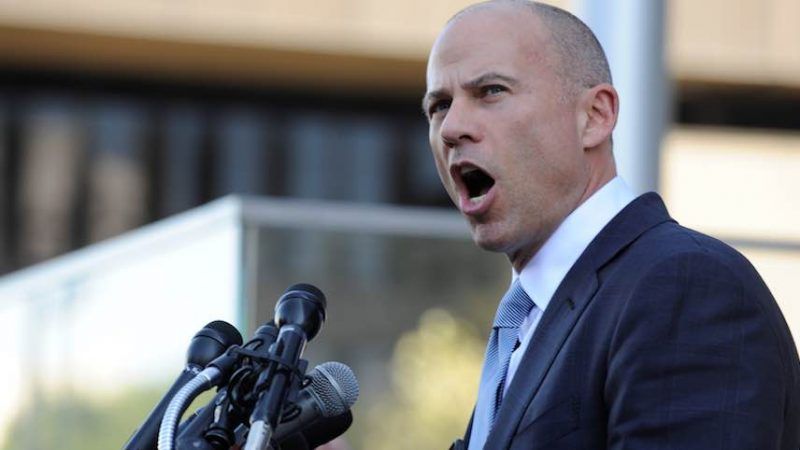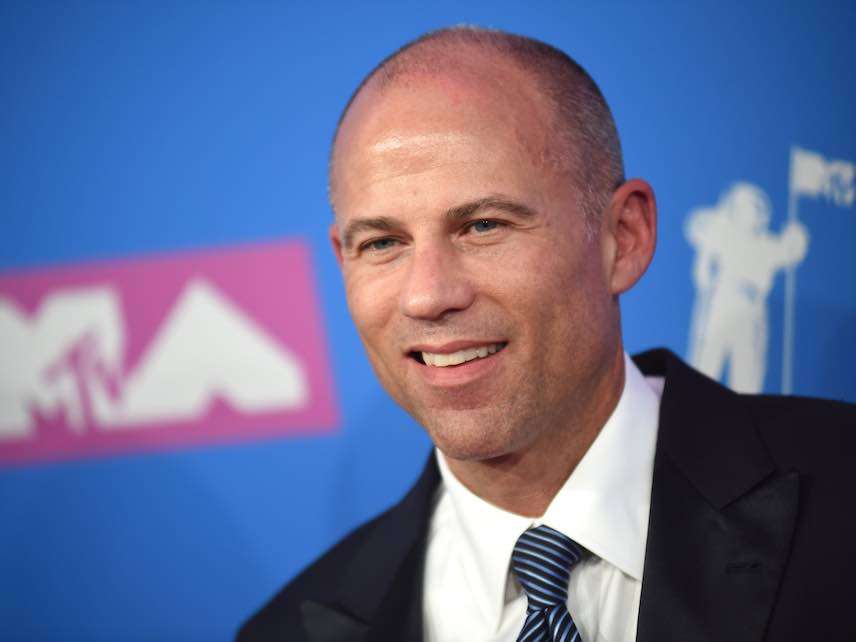Brett Kavanaugh Will Be Confirmed, and Liberals Should Blame Michael Avenatti
Sen. Susan Collins called the Swetnick story "outlandish." It might have given her cover to confirm the judge.


Sens. Susan Collins (R–Maine) and Joe Manchin (D–W.Va.) announced on Friday they would vote to confirm Brett Kavanaugh, which effectively means the judge will be joining the Supreme Court despite multiple allegations of sexual assault.
Democrats, the left, and various other anti-Kavanaugh persons can thank attorney Michael Avenatti for this outcome, at least in part.
The spotlight-stealing lawyer, who also represented Stormy Daniels, is responsible for drawing the media's attention to Julie Swetnick, an alleged victim of Kavanaugh who told an inconsistent and unpersuasive story. Swetnick's wild accusation provided cover for fence-sitting senators to overlook the more plausible allegation leveled by psychology professor Christine Blasey Ford, and to declare that Kavanaugh was being subjected to false smears.
Indeed, in her speech announcing her decision to vote for Kavanaugh, Collins explicitly made note of Swetnick's allegation, which she described as "outlandish."
"That such an allegation can find its way into the Supreme Court confirmation process is a stark reminder about why the presumption of innocence is so ingrained in our American consciousness," Collins said.
Sen. John Kennedy (R–La.) echoed Collins, telling MSNBC's Chuck Todd, "I think this process changed dramatically when Mr. Avenatti entered the picture. I think a lot of people, including many of my Democratic colleagues, felt like we had gotten into the foothills of preposterous."
Even on the Republican side, many people seemed to the think the testimony offered by Ford was credible. But it's much easier to take the position that the allegations against Kavanaugh are all lies if you have reason to believe at least one of the allegations is untrue. This is yet another problem with the automatically-believe-all-women philosophy embraced by fourth-wave feminism: When a woman is shown to have (probably) lied about her experience—something that does happen from time to time—the entire philosophy looks silly, because it rests on the idea that the consequences for coming forward are so awful that no one would ever lie. Swetnick undermined the believe-all-women position with her story, and Avenatti helped her by pushing it to the forefront of the news cycle.
Avenatti—and to a lesser extent, Jane Mayer and Ronan Farrow, who ran with a story so thin The New York Times wouldn't print it—took the narrow question of whether Kavanaugh or Ford was more believable, and raised the stakes by asserting he was a serial sexual abuser, rather than an inconsiderate, sexually aggressive teenage drunk. It was always going to be easier to poke holes in the grander narrative. This very well may have been a gift to those who were looking for cover to vote for Kavanaugh.
It's unfortunate for the anti-Trump resistance, and for Ford, that Avenatti couldn't help but make the story about him.


Show Comments (644)